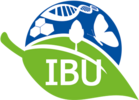Contact
PD. Dr. Thorsten Brinkhoff
Institute of Chemistry and Biology of the Marine Environment (ICBM) Phone +49 (0)441 798 3269 eMail thorsten.henning.brinkhoff@uol.de
B1
B1 Phylogenetic and Functional Bacterial Diversity on Cancer pagurus
Mr Nils Bergen, MSc.
IBR PhD Candidate
| Contact details: | Institute for Chemistry and Biology of the Marine Environment (ICBM) Carl-von-Ossietzky-Str. 9-11, 26129 Oldenburg, Germany |
|---|---|
| Telephone: | +49 (0)441 7983637 |
| Fax: | +49 (0)441 7983438 |
| Email: | nils.bergen@uol.de |
Supervisors:
PI: Thorsten Brinkhoff, Co-PIs: Gabriele Gerlach, Peter Schupp, Thorsten Dittmar, Philipp Krämer (AG Gerlach)
Projects and Research:
Bacteria play generally a highly significant role for the health or impairment of the organisms they are associated with. Although the occurrence of bacterial epibionts as part of the microbiome of C. pagurus has been documented, the relevance of these epibiont-host relationships and the ecological context are not well understood.
This project aims to isolate and characterize bacterial strains from the shell of the edible crab C. pagurus (Crustacean) to reveal the function of the bacteria for their host and vice versa. C. pagurus is largely distributed in the North Sea and the North Atlantic Ocean, has an important ecological function as predator in its habitat, and is subject of the largest crab fishery in Western Europe. Furthermore, C. pagurus increasingly gets infested by the so-called shell disease, in which bacteria apparently play an important role. This project will provide an overview of the epiphytic bacteria of the surface of C. pagurus and characterize its bacterial core community and identify typical microorganisms occurring on the carapace.
Using various microbiological techniques bacteria will be isolated to identify the cultivable fraction of the bacterial community on the carapace and for subsequent characterization of selected strains. Availability and investigation especially of strains representing relevant taxa will help to gain a better understanding of the interaction between the bacteria and their host, i.e. whether the relationship is based on mutualism, commensalism, or parasitism. Characterization of model organisms will include substrate tests (e.g. degradation of chitin), screening for production of antagonistic compounds (activity against bacteria, fungi and algae), signaling molecules and other secondary metabolites, possibly relevant for the interaction.
Publications:
Previous publications by the candidate:
Pathways and substrate-specific regulation of amino acid degradation in Phaeobacter inhibens DSM 17395 (archetype of the marine Roseobacter-clade), Drüppel, K., Hensler, M., Trautwein, K., Koßmehl, S., Wöhlbrand, L., Bergen N., et al. (2013). Society for Applied Microbiology and John Wiley & Sons. Environ Microbiol. 2014 Jan;16 (1): 218-38. doi: 10.1111/1462-2920.12276



